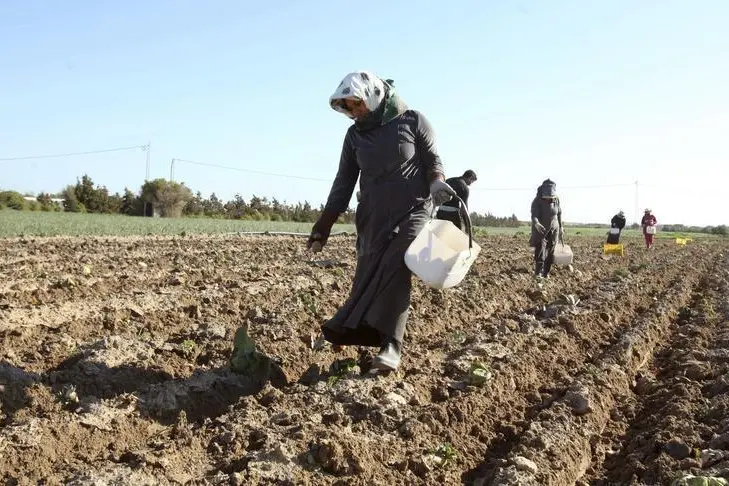PHOTO
A new specific support mechanism for the agricultural sector in Tunisia has been set up by the European Union (EU) and the Italian Agency for Development Cooperation (AICD), says a press release published Friday in Tunis.
Launched as part of the "Support for Sustainable Development in the Agricultural and Artisanal Fisheries Sector in Tunisia" (ADAPT) programme, this support mechanism consists of a support fund - cereals component - of 18 million euros, intended to help small producers to overcome the increase in production costs and to adapt their cultivation techniques to climate change.
The ADAPT programme is funded by the EU to the tune of €44.4 million - and implemented by the Italian Development Cooperation Agency in partnership with the World Food Programme.
The mechanism initially concerns three collectors mandated by the Office des Céréales, including two seed collectors.
These include the private company "Comptoir Multiservices Agricoles -CMA", leader in the collection of consumer cereals in Tunisia with an average of 30% of the national cereal collection (collection rate for the 2021-2022 campaign), the "Société Mutuelle Centrale de Semences - COSEM" and the "Société de Semences Sélectionnées - SOSEM", national leaders in the multiplication and marketing of selected seeds, which contribute 47% and 28% of the areas destined for the production of seeds in Tunisia (for the 2022-2023 campaign).
The said collectors will receive a financial contribution of a total amount of about 800,000 euros.
Agreements were signed on May 12, 2023 with the Italian Agency for Development Cooperation (AICS), which provide for this contribution to help reduce the amount of credit repayments made to approximately 1,000 male and female farmers during the 2022-2023 season.
The reduction is 28% on their invoices for expenses eligible for this financing, i.e. all agricultural inputs necessary for cereal growing, purchased on credit from mandated collectors, except expenses for the purchase of non-organic pesticides.
The farmers benefiting from the programme will also receive support from the Institut National des Grandes Cultures (INGC), which will provide technical support and monitoring, thus contributing to Tunisia's food security and sovereignty.
This programme, which has become operational, also mobilises the European Regional Facility for the Resilience of Food Systems worth 20 million euros allocated to Tunisia, to which 5 million euros have been added from bilateral cooperation between the EU and Tunisia, the same source said.
The ADAPT programme and its cereals component are also complementary to the PRASOC programme financed by Italy to the tune of 57 million euros. The AICS and the EU thus intend to provide concrete solutions to farmers to facilitate their access to the necessary financing for their investments in adaptation to climate change.
As executive partners of the programme, INGC and the Institution de la Recherche et de l'Enseignement Supérieur Agricoles (IRESA) are supporting the beneficiary producers to maintain and enhance the sustainable production potential of Tunisian cereal systems, in collaboration with other international research institutions.
The World Food Programme also raises awareness among consumers to reduce the waste of cereal products. It also contributes significantly to the objective of improving Tunisia's food security and sovereignty.
© Tap 2022 Provided by SyndiGate Media Inc. (Syndigate.info).





















